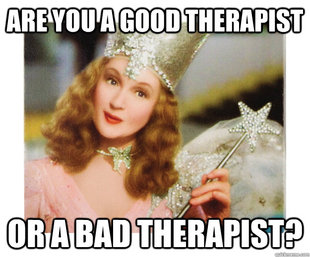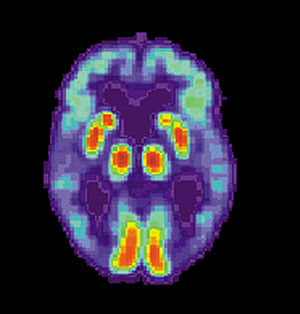We can choose our friends, but we can't choose our family. For the letter U today, I'm going to excerpt and comment upon the excellent piece from
Out of the Fog.
Unchosen relationships are relationships with family members who suffer from personality disorders.
And other mental illnesses.
Unchosen is a term used to describe those of us who
did not choose their relationship to a person with a personality
disorder. Some of us have parents with this disorder; others have a
sibling, in-laws, or other familial relationships. We did not choose
this relationship the same way a person chooses a relationship to a
partner with or a friend with a personality disorder.
With a spouse, love partner, neighbor, boss, co-worker, we can choose to leave the relationship, to move, to change jobs. It might be painful and very difficult, but we can get away. It's harder to get away from family, or to abandon a family member (sibling, parent, child) who has married a dysfunctional person; however, in those cases, we are normally dealing with the unpleasant in-law from an adult, rather than a child's, perspective.
For instance: someone who grew up with a personality
disordered parent will have had a vastly different struggle than
someone who had a relatively normal childhood, but ended up with a
disordered partner. That doesn't mean the "Unchosen" person's pain is
any greater or any less than the "Chosen" person's pain, but very often,
the abuse and inappropriate behaviors modeled during his or her
formative years will have deeply affected the Unchosen Non child's core
sense of being (and well-being), and may have long-lasting impacts on
trust, self-esteem and the ability to form or maintain healthy
relationships in adulthood.
In the paragraph above, "non" refers to a child without a personality disorder. Being a "non" as compared to a person with a personality disorder does not mean everything is a-ok with us. In fact, a non may have many other Issues, and behave inappropriately and harmfully to self and others, too.
I can personally testify that it is really hard to choose a healthy love relationship, when you have no friggin' clue how to recognize it. If there are no models in your family of origin, how do you even know what one looks like? TV and movies? Books?
 |
| cast of Leave It To Beaver |
I know that my own relationship with my OCPD ex was in large part an attempt to heal wounds left by my relationship with my narcissistic, alcoholic father. Sadly, my ex was just f---ed up in a different way. In large part because I was used to dysfunction, I missed the red flags, and when I did see them, I thought, well, now, with my adult skills, I could fix him.
When the personality disordered individual is a
child, the pain and disruption is experienced by the entire family.
Adults feel responsible, trapped, frustrated and depressed.
Non-personality-disordered siblings feel fearful and neglected as their
parents focus on the problems created by the disordered individual.
Partly because of poor understanding of where mental disorders come from, there is the guilty assumption by parents that if only one had loved the child enough, been patient enough, done the right thing, his/her mental disorder would not be so severe. Or, possibly, there may be guilt for passing down defective genes or eating or drinking the wrong thing during pregnancy. Siblings may have very mixed feelings, especially as teenagers; sometimes loving their troubled sibling to pieces, other times perhaps even wishing s/he were dead.
The Unchosen Relationship
To be in an unchosen relationship is difficult
and often traumatizing. We are told repeatedly by society and
well-meaning people that we "must," "should," "have to" (fill in the
blank) because they - the personality disordered - are family.
"After all, he is your father." Boy, if only I had a dollar for every time someone said that to me!
We are often asked to overlook continued abuses
because the person is ill. In other instances we are expected to “be
the bigger person” and stuff our emotions so as not to upset the ill
family member. We are asked to parent our parent while still trying to
have a life of our own.
People who haven’t been where we have been truly
have no idea what we live with. Some of us are constantly torn between
trying to protect and heal ourselves and trying to have some sort of
relationship with our families, however dysfunctional they may be.
Others have decided that they no longer want a relationship with the ill
family member. Many of us have been subjected to a lifetime of
emotional, verbal, physical, and sometimes sexual abuse. These abuses do
not disappear just because time has passed or because we are adults.
Sometimes the worst scars cannot be seen.
In this section, you may see terms like NC (no
contact) or LC (limited contact). Many people choose one or the other,
or drift back and forth between them trying to find a balance with which
they are comfortable. Some choose to try and tolerate what they can,
when they can, knowing they are unable to completely remove themselves
from a parent or other relative. Understand that what works for one
simply does not work for everyone.
After decades of trying to begin a new relationship with my father, as an adult, which efforts were ignored and/or abused by him, I decided upon LC. It was the best way for me to forgive his past offenses and remember the good things about him (which I could count on my fingers). For myself, I couldn't "deal" with fresh offenses and his constant attempts at emotional manipulation.
My oldest sister chose to become more involved, supervising his finances and getting him placed in a good veteran's home facility, but even she drew the line at bring him into her home, or even into our state. Our other sister's choice was similar to mine, LC. When our father died last year, our middle sister chose to attend the memorial service, in support of our oldest sister. I chose to stay away - also in support of our oldest sister. Because once people began spouting the usual post-death BS about what a great guy the man was, I would probably have lost it and spoken up. This would have hurt my sister to no good purpose.
So I don't judge people who don't visit their parents or mentally ill siblings; don't call them, or make other efforts to avoid contact. It may show an admirable amount of restraint that they don't accidentally-on-purpose poison the person who's brought so much pain into their lives.
An Unchosen Perspective on Boundaries
It can be difficult to maintain or define
boundaries when you are involved in a familial or otherwise unchosen
relationship. Often, we are taught as children "not to make waves" or
to “just get along;” that is, to not assert or define our own
boundaries. As children we want to please our disordered parent and get
along with a disordered sibling or relative; however, a personality
disordered individual lacks appropriate personal boundaries of their
own. This can result in inappropriate affectionate gestures and lack of
personal privacy for the child.
This is why we should never "make" children kiss Aunt Clara, or sit on Santa's lap.
When our own personal boundaries are routinely
broken, the message we learn is that our own needs and feelings don’t
count - we are required to accept how others treat us without question.
As we grow into adults, these lessons can become our way of life. We
often feel taken advantage of, feel used or feel that our desires are
unimportant. We become frustrated and angry that our boundaries are
violated yet we are unable to express what, exactly, our boundaries
are.
In a healthy relationship, there are always boundaries. Children should be able to have their own special toys that they are not expected to share, for example, especially if they have a "special" sibling who tends to break or destroy much of what s/he plays with.
Constant yielding to a parent, sibling or relative
becomes second nature. We lose our own sense of self and often find
ourselves in unhappy relationships, jobs and life situations. The early
lessons - that our feelings, views and opinions don’t count - continue
to dominate our lives, sometimes subconsciously.
We may feel we are only worthy if/when we are pleasing someone else. If we're doing something purely for ourselves - reading a book, watching a movie that nobody else in the household wants to watch, getting a massage - we may feel selfish, weird.
This can result in poor life choices, from
entering into careers or occupations that are a poor fit for us, to
marrying the person we “should” rather than the person we love. The
yielding to others we were taught as children can spill over into every
relationship we have as adults. The consequences can be disastrous and
painful. It sometimes feels as if we are living someone else’s life.
Because we don't have our own sense of self, we may
Rescue others and
follow the pattern assuming responsibility for how
we "make" others
feel. I know people who keep themselves quite busy being problem scouts - spotting and "helping" other people's potential problems before they even have a chance to notice and take care of the issue, themselves.
Then the problem scout wonders why her adult children don't seem to show any initiative, or make poor decisions on the rare occasion they do decide something for themselves.
Learning to enforce boundaries takes practice and
patience. Yet it can be done - and lead us to a healthier, happier life.
You can read some more ideas on setting healthy boundaries in our
boundaries section.
And here:
Boundary Betty. Boundaries are different than walls, but it may help to think of them as castle walls. Something from the outside is stopped on the other side of the moat. After thorough examination, either the drawbridge is let down and it's invited in, or it's turned away.
When we have weak or no boundaries, anything someone says to us, does to us or even does around us gets hustled right in. We arrange our universe around what we think is gong on. Somebody makes a strange face - we must have done something to annoy him. (When the reality is, maybe he's just suppressing a fart. It's not always all about us.)
Types of Unchosen Relationships
There are distinct categories of non-personality-disordered individuals who call themselves “Unchosen”:
Children forced to live in an environment where someone else is abused.
Please take note of the last. Even if the child is not him or herself battered, sexually or verbally abused,
it is not healthy for children to live in an environment where they regularly witness one member of the household abuse another. Perhaps Grandpa has come to live with the family and he's a raging a-hole to his adult daughter, the child's mother. Perhaps the mother is personality-disordered and regularly tears the father a new one.
Yes, "splitting the household apart" might be painful and quite difficult. But please, consider that you may be training the child up to recreate a household
just like the one s/he grew up in.
I get that leaving is not always possible. I know my mother wanted to leave my father, but when you have a young child, and are terminally ill with cancer, your options are limited. Besides which, that was the early 1970's, and women had only a fraction of the legal rights in divorce they have today.
Still, there were avenues she could have explored: moving in with friends or family members, perhaps. If she had the physical and emotional strength to pursue them. I don't blame her; I understand that when you live with someone whose view of the world is black-or-white, your own thinking tends to become that way as well. You fail to see there are not
two choices; there are probably
two dozen choices.
There are always options. Please, please,
please, do not bring children into the world when you are in a dysfunctional relationship, thinking that a baby will make everything better and help your partner heal. And if you already have children, please consider whether continuing in a household where a severely dysfunctional person lives is healthy for them. Leaving or throwing out the disordered person are not the only choices; I know a woman who actually sent her children away, to live with some family friends who acted as guardians for them. It broke her heart, and yet, was probably much better
for them than continuing in that household.
My A-Z theme is Issues related to Mental Health or Mental Illness.
Are you in any unchosen relationships
with a mentally disordered person?
Is this a new thing, or did it begin when you were a child?
How has it affected the way you see the world and relationships?

























